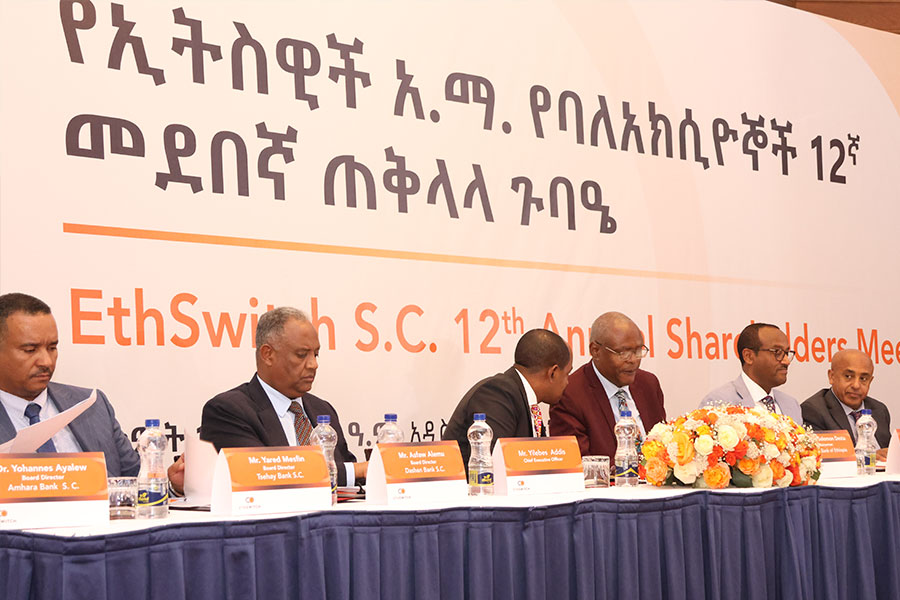
EthSwitch, the national switch operator, reported a record 1.4 billion Br gross profit for the fiscal year ending June 2025, a 34pc increase from last year’s 1.06 billion Br. The performance was driven by a sharp rise in interoperable transactions, reflecting the country’s growing embrace of digital payments. Person-to-person (P2P) transfers led revenue generation with 902.6 million Br, nearly half of total income, followed by ATM transactions contributing 825.1 million Br. Overall revenue climbed 49pc to 2.2 billion Br, as EthSwitch processed 287.4 million transactions worth 741.1 billion Br. P2P transfers surged 158pc to 128.3 million transactions valued at 577.7 billion Br, making it the fastest-growing segment. Net profit reached 1.05 billion Br, while paid-up capital rose to 2.6 billion Br. The company also announced plans to build a 12-storey headquarters on Equatorial Guinea Street near Casanchis, underscoring its continued growth. Board Chairperson Solomon Desta said the results reaffirm EthSwitch’s pivotal role in enhancing interoperability among financial institutions and advancing the digital payment ecosystem, despite ongoing macroeconomic challenges.
[ssba-buttons]